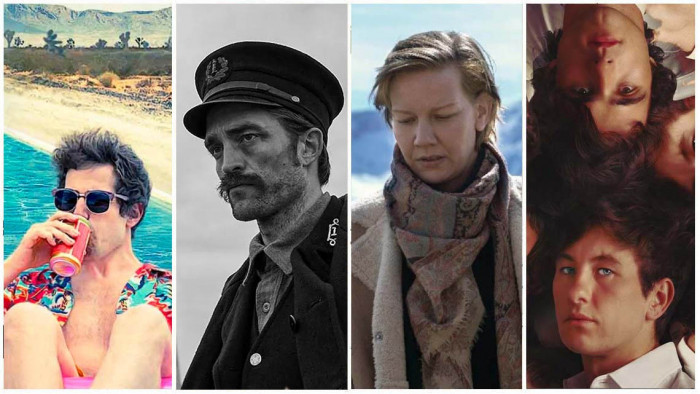This is why Alan Partridge is the Shakespeare of our times
Partridge sums up our nation like no other


If you haven’t done so before, I highly recommend - upon finishing a full and attentive read of this article - that you purchase the audiobook of I, Partridge, the 2011 autobiography of Alan Partridge, and listen to it from start to finish. All 6 hours and 56 minutes of it.
This very week, while nursing a frankly vile eye infection which necessitated lying down in a darkened room with my lids closed, I put on the audiobook and took in several hours of it, non-stop, like an aural Partridge waterboarding. Very quickly, you start to completely lose your mind - and enter Alan’s; rewriting history to make your trivial life events seem more dramatic and interesting than they really were, reveling in pettily getting one over on your rivals, persistently sighing at life’s minor irritations but also finding very real, and innocent, pleasure in the joys of service station forecourts and the Wild Bean cafe.
Of course, I’m inferring here that mine and Alan’s minds are different, but then I look at that list above and realise that those are exactly the same things that I think about. And, I darsesay, exactly the same things that a vast majority of the Great British public think about too. It is hard to think of another character for whom a (nearly) full seven hours of audio autobiography would not even feel like even a slight stretch to either write, or listen to, but then it is hard to think of another character who is so fully-realised, who is so utterly unremarkable, and yet so utterly remarkable in the way he speaks a truth - a truth which is often incredibly subtle - back to you.
If Shakespeare used plays to illustrate the fundamental nature of humanity, then Partridge - and his godfathers Steve Coogan, Armando Ianucci, Peter Baynham, Rob Gibbons and Neil Gibbons - uses the graveyard shift of a local Norwich radio station to do the same.
And he - Alan Gordon Partridge - first truly revealed himself on 3 November 1997, with the broadcast of the very first episode of I’m Alan Partridge. Just how did this transformation to cultural behemoth happen? Let’s investigate.
Now, before you start - of course, Partridge had been in our lives for a while before I’m Alan Partridge. Six years previously, he had first appeared as the sports reporter on the Chris Morris radio show On The Hour, which would move onto TV with The Day Today three years later. But, while obviously hilarious, this didn’t really give us an insight into the mind of Partridge beyond his fascination with needless minutiae, his ability not to let a lack of knowledge get in the way of spouting opinion and a propensity to wander off-topic. It hinted at what lurked below.
Likewise, you may argue more forcefully that Knowing Me, Knowing You with Alan Partridge, which ran for six episodes on radio in 1992 before, again, transferring to TV in 1994, was the real entrance of Partridge into our lives. But, while these - obviously - gave us a far greater look at the man, he was still very much the frontman for a parody of lame TV hosts and the overarching format itself. We knew Partridge only insomuch as we knew his public-facing demeanour. Top Gear, The Grand Tour and warm steak fans may think they know Clarkson, but they don’t really know him. They know the version that he chooses to share with us, even if his on-screen persona can give fairly strong hints as to what he really thinks about life. Partridge was the same - we knew Alan Partridge, the TV presenter.
But I’m Alan Partridge showed us Alan Partridge, the man.

It’s easy to forget, with the passing of time and the familiarity of so much of it, that the first series of I’m Alan Partridge is a based around a truly harrowing premise. This is a direct and unflinching look into the life of a man whose world has fallen apart. Whenever anything went wrong on KMKYWAP, Partridge would keep battling on, keep up the brave face for the sake of the cameras; we never got a look into his home life - other than when his front room was faithfully recreated for the set of Knowing Me, Knowing Yule, of course.
But now, the truth behind the lights and the glitz and the Glenn Ponder-led house band was laid bare. A middle-aged man, who almost immediately loses his place on his beloved television, whose wife has left him, whose kids have no interest in speaking to him, and who lives in a travel tavern, working the graveyard shift on Radio Norwich and enduring the contempt of virtually everyone he encounters. And, what is more, Alan deserves all this. Wikipedia describes his character as: “generally loathsome and narcissistic with very poor social skills and a largely empty personal life”. Even the DVD cover sells it in as “the bitter life of a failed chat show host”. This, it has to be said, does not sound like a fun watch.
And yet, of course, it’s quite simply one of the greatest comedy shows ever made.

Very immediately, upon rewatch, you notice just how many lines have now entered common usage: Partridgeisms which now form part of the English language, but which did not exist prior to 1997. Witness just the first three minutes of Episode 1, ‘A Room with an Alan’: “Another one of those, same time tomorrow”; “Bit of extra purchase”, “Scum, sub-human scum”; “I’ve not thought it through Lynn”; “Classic Queen”; “No, he never does [re Bill Oddie]”.
I, and I imagine countless others, have used these on many occasions over the last 20 years. And that’s just a random three minutes of one episode; over the course of a whole series there are, literally, hundreds of them. Forget the ‘Jurassic Park’ catchphrases, which were funny for a bit before becoming tiresome, the truly great Partridge ‘catchphrases’ are those seemingly innocuous, but hilariously timed and delivered, almost inconsequential lines. And why are they so memorable? Because they are the perfect demonstration of the wholly mundane character that is Partridge.
And this, perhaps, hints at an explanation for the big question. When Alan is - apparently - such a hateful figure - vain, ignorant, self-obsessed, small-minded, petty - why is he so loved? And why is it so unbelievably funny?
It’s because he is one of us.

Armando Iannucci said that the writers of I’m Alan Partridge used the sitcom as “a kind of social X-ray of male middle-aged Middle England” and anyone who has even a smidgeon of middle England blood flowing through their veins - or has simply ever set foot inside an M&S food hall - will understand where Partridge is coming from, even if they think they disagree entirely with his worldview.
To cite but a couple of examples: his belief that there has been no good music made since 1988 - well, sometimes we all think that, especially when the ‘70s and ‘80s were so full of middle-of-the-road bangers. His instinctive fear of anyone different - we all like to think we’re woker than the next guy but sometimes the truth is painfully different - and at least Alan has the childish desire to ask a blunt question when he encounters something he’s not familiar with; witness his fascination with the video executive with a talkbox in ‘Watership Alan’. His constant resorting to childish behaviour - who hasn’t secretly wanted to act the way he did when Tony Hayers informed him he wouldn’t get a second series, rather than going through the polite motions of continuing what would have been a totally pointless lunch meeting?
In true British style also, due to his own total ineptitude, Alan ends up as the one thing we can never resist: an underdog, which means that we can’t help but root for him.
As the series progresses, we also discover that, deep down, there is a good guy struggling to get out. He genuinely finds beauty in the mundane, and it’s hard not to love a guy that takes punch after punch (from Susan), cow after cow (from a farmer), and yet still gets up again to have another go. He even offers advice to his wife’s new lover on how to operate the immersion heater.
Somehow, by the end of the series, we’re as devastated as he is when Chris Feather croaks it before he has chance to sign his mega contract.

Of course, this softer side is something that has been allowed to come out much more in the later Partridge output of Mid Morning Matters, Welcome to the Places of my Life and Alpha Papa, as Alan has aged, made peace with his situation and embraced his desire to learn much, much more. As Coogan says, “He’s aware of political correctness but he’s playing catch-up. In the same way that the Daily Mail is a bit PC – it wouldn’t be openly homophobic now – Alan is the same. He tries to be modern.”
What’s also hugely prescient, especially given his recent debate with Malcolm Tucker in The Big Issue, is that the seeds of Brexit can be seen two decades ago, in I’m Alan Partridge. Coogan may have said that Patridge is “a Brexiteer because the Daily Mail told him to be” but I don’t think it’s quite as simple as that: I think Alan would have reached that conclusion by himself. Wary of ‘gravy trains’ - in his case the BBC, but he’d have easily extended that to the EU - wary of fancy foreign ways and being told what to do by the liberal elite, a man who deeply loves his country (but possibly his county even more) - a believer in Britain and comfortable in the local and the familiar: Partridge is a natural Brexiteer.
And perhaps that’s why Partridge can, again, teach us so much. Any ardent Remainer, who thinks they cannot understand a Leaver’s point of view and has built up this picture in their head of what they think a Brexiteer is - well, think of Partridge. He’s a Leaver and, when it boils down to it, there’s a bit of Partridge in you isn’t there? So Brexiteers are not so different from you; they’re not monsters, they’re not completely wrong, they’re just a little different.

And where does Season 1 of I’m Alan Partridge rank in the list of all-time Alan? Well, for me, it’s the best. It’s the purest form of Partridge. This was Alan at the inflexion point of his life; very, very shortly after the peak of his career, but at the beginning of his journey as a person. He didn’t realise it, but this was really the start for him; the first steps along the road to redemption. But, of course, watching a man who has no idea that this is the case, and who brilliantly manages to annoy everyone he meets - but remain completely oblivious - is magnificent to watch.
Of course, it would be utterly remiss not to mention the absolutely incredible set of supporting characters in the show: long-suffering Lynn’s faithful dedication to the cause of Alan; Michael’s upbeat tales of smoking monkeys and ladyboys; Chris Morris’ angry local farmers’ union leader; Kevin Eldon’s laughing racist; cheeky and youthful Ben and Sophie, and - of course - Alan’s radio nemesis Dave Clifton. All of these are astonishingly brilliant but, really, this is the story of Alan - it’s the story of you.
Even if you disagree with most of the above, however, you should love I’m Alan Partridge for three reasons.
One: Alan’s Chris Rea monologue. Possibly the purest example of the internal conflicts in Partridge’s mind, proving that he is, literally, a man that could start an argument in an empty room.
Two: Despite ostensibly being terrible at television, he still managed to accurately predict the future of it with his series of programme ideas. Not so stupid after all, eh?
And three: Because when Alan declares The Best of The Beatles to be the best Beatles album, he is ‘bang right’. Because it’s got the best Beatles songs on it, right? So it must be the best album.
Thank you, I’m Alan Partridge.
(Images: BBC)
Latest
Related Reviews and Shortlists


The 10 best war movies of the 21st century








